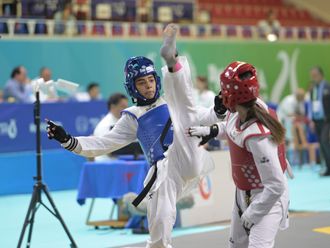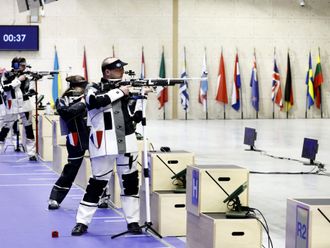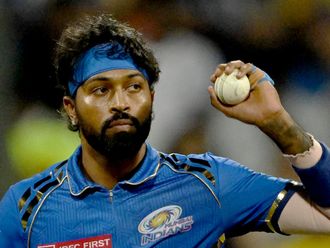New Delhi: From a "toxic" pool to empty stadiums and faulty boxing scales, the first week of the New Delhi Commonwealth Games has served up daily blunders that have deepened India's embarrassment.
The event in the Indian capital, which finishes next Thursday, is the most expensive in the history of the competition, but could set records for another reason: being the most accident and gaffe-prone.
"I think a lot of it has been teething problems and because India has never hosted an event of this scale," sports marketing consultant Indranil Das Blah of Kwan, a consultancy, said.
"But if the planning had been more organised then there wouldn't have been so many problems," he said.
Spectacular opening
The spectacular opening ceremony last Sunday gave no clue of the troubled preparations for the Games, which saw teams threaten to pull out, construction work finished at the last-minute and a bridge at the main stadium collapsed.
The three-hour dance extravaganza wowed spectators and the fiercely critical local press almost enough to erase memories of the snake found in the tennis complex or the stray dogs rounded up at the athletes' village.
Once the sport started, however, the rushed preparations, which left little time for practice or testing, appeared to take their toll.
New problems emerged daily and even the opening ceremony had not gone as smoothly as it had seemed from the stands.
"We were treated like cattle. It was disgraceful," Australian team chef de mission Steve Moneghetti complained afterwards, saying his athletes were forced to wait in searing heat before they appeared.
On Monday there were farcical scenes at the official boxing weigh-in, which was eventually abandoned after faulty scales showed most of the fighters were too heavy. The scales were eventually repaired.
Empty stadiums
"During the course of any Games, even if you have perfect organisation, there are issues," Commonwealth Games Federation boss Michael Fennell told reporters afterwards.
On Tuesday, organisers in Delhi came under fire over the glaringly empty stadiums, even for crowd-pulling sports such as hockey or wrestling, which saw some competitors win medals in front of small groups of cheering family members.












